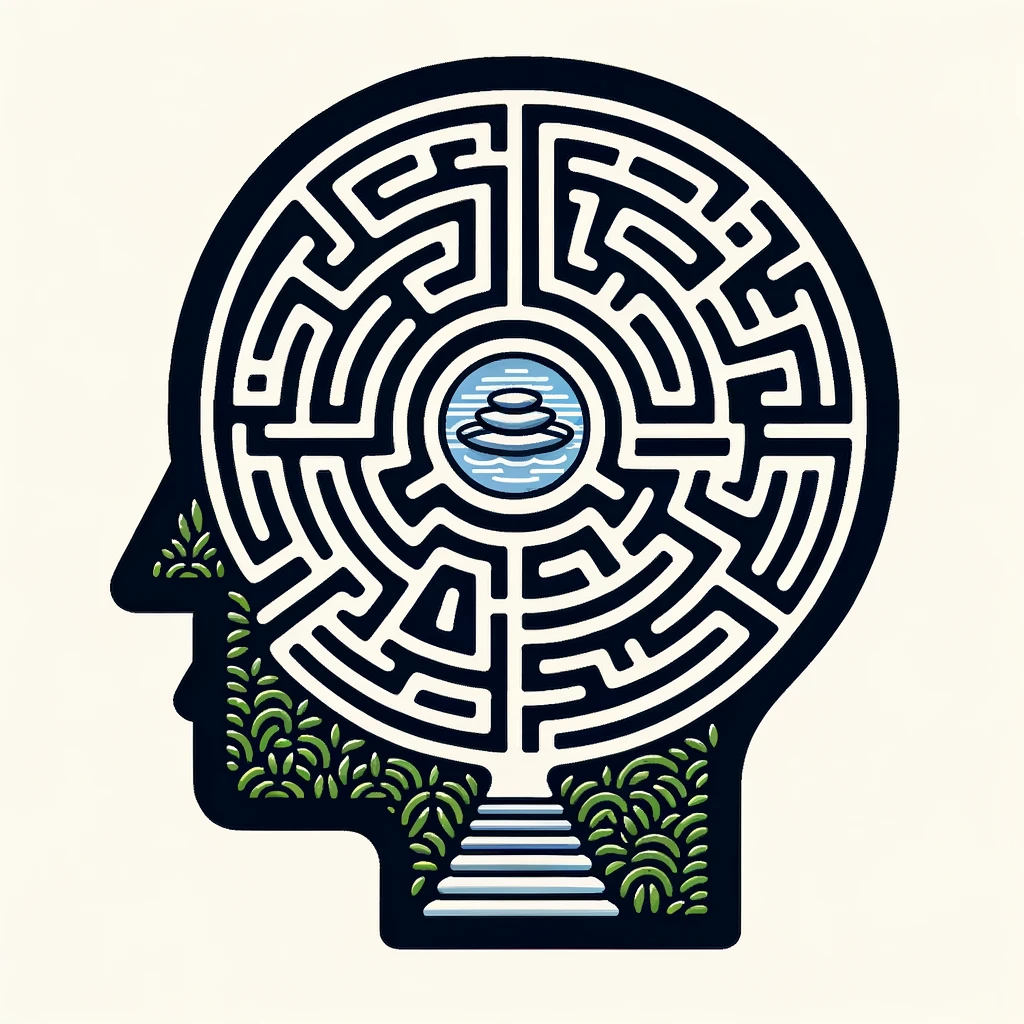-

Economics is the study of how individuals, businesses, and nations allocate their limited resources to satisfy their diverse needs and wants. By diving into this subject, students will uncover the principles governing the production, distribution, and consumption of goods and services. They'll learn about market dynamics, the intricacies of supply and demand, and the macroeconomic forces that shape national and global policies. Gaining proficiency in economics equips individuals with a lens to understand and predict market trends, make informed financial decisions, and grasp the broader implications of policy changes. Whether it's for personal financial empowerment or contributing to large-scale economic strategies, a strong grounding in economics is invaluable in navigating our interconnected global economy.
Economics
All levels (KS3, KS4, GCSE, IGCSE, A-Level, IB and Degree Level)
-

English Literature delves into the vast world of prose, poetry, drama, and narratives, offering students an enthralling journey through the epochs of literary artistry. Through literature, learners encounter diverse voices, historical contexts, and the myriad ways in which stories reflect and shape societal values, struggles, and dreams. It's an exploration of the human experience, emotions, and the enduring power of storytelling across time. English Language, on the other hand, is a study of the very medium of these expressions: the intricate tapestry of words, structures, sounds, and semantics. It equips students with a deep understanding of linguistic nuances, from phonetics to syntax, while honing their skills in communication, comprehension, and analysis. Together, English Literature and Language offer a comprehensive insight into the power and beauty of the written and spoken word. Mastery in these subjects enhances critical thinking, empathy, and the ability to articulate thoughts and feelings with eloquence and precision. In a world driven by communication, a profound understanding of English Literature and Language is a key to connecting, understanding, and influencing the world around us.
English
All levels (KS3, KS4, GCSE, IGCSE, A-Level, IB and Degree Level)
-

History is the chronicle of human civilization, painting a vivid tapestry of triumphs, tragedies, innovations, and revolutions that have shaped the course of time. By diving into this subject, students embark on a journey through the annals of time, from ancient empires and their legendary leaders to pivotal moments that redefined the modern era. Through the lens of history, learners gain insight into the cultural, political, and social forces that have molded societies, civilizations, and the very fabric of human identity. Studying history fosters critical thinking, a nuanced understanding of diverse perspectives, and the ability to analyze the consequences of actions and decisions. With a grasp of history, one can better understand present-day challenges, appreciate the sacrifices of the past, and contribute to building a more informed and empathetic future. In essence, history is the bridge connecting our past to the possibilities of tomorrow.
History
(KS3, KS4, GCSE, IGCSE, A-Level)
-

Chemistry is the intricate study of matter and the changes it undergoes, delving deep into the composition, structure, properties, and reactions of substances. As students immerse themselves in this fascinating subject, they'll discover the building blocks of the universe: atoms, molecules, and compounds, and how they interact in countless ways to form the world around us. From the medicines we consume to the fuels that power our world, chemistry plays a pivotal role. Understanding chemistry means understanding the reactions that cook our food, the processes that purify our water, and even the complex pathways within our own bodies. The discipline fosters analytical skills, precision, and a deep appreciation for the unseen forces that shape our daily lives. Embracing chemistry not only unlocks the door to a myriad of professions in research, healthcare, and industry but also cultivates an informed perspective on the molecular dance that underlies existence.
Chemistry
All levels (KS3, KS4, GCSE, IGCSE, A-Level, IB and Degree Level)
-

Maths, often described as the universal language, is the abstract science of number, quantity, and space. Venturing into this discipline, students will journey through a landscape of numbers, equations, shapes, and patterns, unlocking the logical and structural beauty that underpins reality. From basic arithmetic and geometry to complex calculus and abstract algebra, maths provides the tools to decipher and describe the patterns of the universe. Beyond its theoretical elegance, mathematics serves as the foundation for virtually every field of study and industry, be it engineering, economics, physics, or even arts. Mastering maths hones analytical thinking, problem-solving capabilities, and a structured approach to challenges. In a world brimming with data and complexity, a strong grounding in mathematics empowers individuals to navigate challenges, innovate solutions, and appreciate the intricate symphony of patterns that orchestrate our reality.
Maths
All levels (KS3, KS4, GCSE, IGCSE, A-Level, IB and Degree Level)
-

Physics is the profound study of the fundamental principles governing the universe, from the tiniest subatomic particles to vast galaxies and beyond. As students immerse themselves in this discipline, they'll unravel the mysteries of matter, energy, space, and time, seeking answers to age-old questions about the nature of reality. Topics like quantum mechanics, relativity, thermodynamics, and electromagnetism illuminate the intricate dance of particles and forces that construct our world. Beyond just theory, physics is the bedrock of numerous technological advancements and innovations. Learning physics cultivates critical thinking, analytical skills, and a sense of wonder about the cosmos. For those curious about the 'how' and 'why' behind the universe's machinations, physics offers a journey of discovery, fostering an appreciation for the intricate beauty and order of the natural world.
Physics
All levels (KS3, KS4, GCSE, IGCSE, A-Level)
-

Business Studies offers a deep dive into the mechanics of the corporate world, encompassing everything from entrepreneurship and marketing to finance and human resource management. As students navigate this subject, they gain a comprehensive understanding of how businesses operate, strategize, and adapt in a fluctuating global market. They'll grasp key concepts like organizational structures, market research, business ethics, and the intricacies of global trade. Equipped with this knowledge, learners are prepared to not only thrive in corporate environments but also to potentially launch and manage their own ventures. The skills honed in business studies – such as decision-making, leadership, and strategic planning – are invaluable, transcending the confines of the corporate world and proving essential in everyday life. Embracing business studies lays the foundation for a promising future in a myriad of professions and entrepreneurial endeavors.
Business Studies
(GCSE, IGCSE, A-Level)
-

Computer Science is the cutting-edge study of algorithms, computational processes, and the design and analysis of software and hardware. By venturing into this dynamic subject, students will demystify the digital world, diving deep into topics like programming, artificial intelligence, network structures, and database systems. They'll gain the tools and knowledge to create software solutions, innovate technological advancements, and understand the foundational principles that drive the digital age. The benefits of learning computer science are manifold: it fosters critical thinking, problem-solving skills, and the ability to innovate in various industries. In a world increasingly reliant on technology, proficiency in computer science not only offers lucrative career opportunities but also empowers individuals to be creators and leaders in the ever-evolving digital landscape.
Computer Science and Coding
(KS3, KS4, GCSE, IGCSE, A-Level)
-

Psychology delves into the intricate workings of the human mind, exploring the reasons behind thoughts, behaviors, emotions, and interactions. Students venturing into this captivating subject can expect to understand the complex dynamics of human behavior, cognitive processes, and the factors influencing mental health and well-being. By studying psychology, one gains valuable insights into oneself and others, fostering empathy, improved communication, and a greater appreciation for the diversity of human experiences. Additionally, this knowledge forms a robust foundation for careers in counseling, research, human resources, and many other fields, underscoring the real-world applications and benefits of delving deep into the human psyche.
Psychology
(GCSE, IGCSE, A-Level)
-

Geography is the expansive study of the Earth's landscapes, environments, and the relationships between people and their environments. Delving into this subject, students will traverse the globe, exploring the physical attributes of continents, the nuances of climate zones, and the diverse cultures that dot our world map. They'll learn about the dynamic processes that shape our planet, from volcanic eruptions and river erosions to urban sprawl and migration patterns. Grasping geography equips learners with a holistic understanding of the world we inhabit, highlighting the intricate balance between human civilizations and the natural world. In an era defined by global connectivity and environmental challenges, knowledge in geography is vital for informed decision-making, sustainable living, and fostering a deep-rooted appreciation for the vast tapestry of cultures and landscapes that make up our world.
Geography
(KS3, KS4, GCSE, IGCSE, A-Level)
-

French, often referred to as the "language of love", is a romantic tongue that resonates with history, culture, and global influence. As students immerse themselves in French, they're introduced to a world of renowned literature, art, cinema, and culinary delights. Learning French goes beyond the intricacies of its pronunciation and grammar; it's an exploration of the Francophone world that stretches across continents, from Europe to Africa to North America. The ability to speak French offers a competitive edge in numerous fields, such as international business, diplomacy, and tourism. Moreover, it fosters an appreciation for cultural diversity and promotes deeper interpersonal connections in our increasingly globalized world. Embarking on the French linguistic journey is a passport to a rich tapestry of global experiences.
French
(KS3, KS4, GCSE, IGCSE, A-Level)
-

Spanish, one of the world's most spoken languages, is the primary tongue of numerous countries across Europe, North and South America, and even some Pacific islands. By embarking on the journey to learn Spanish, students open the door to a rich tapestry of cultures, histories, and experiences. Beyond basic communication, mastering Spanish provides a deeper understanding of the diverse literature, art, and traditions that have shaped the Spanish-speaking world. For the pragmatist, fluency in Spanish offers competitive advantages in the global job market, especially in industries like trade, diplomacy, tourism, and more. Embracing this melodious language not only bridges communication gaps but also fosters a sense of global citizenship and appreciation for the vast and vibrant Spanish-speaking community.
Spanish
Central Functionality VP
